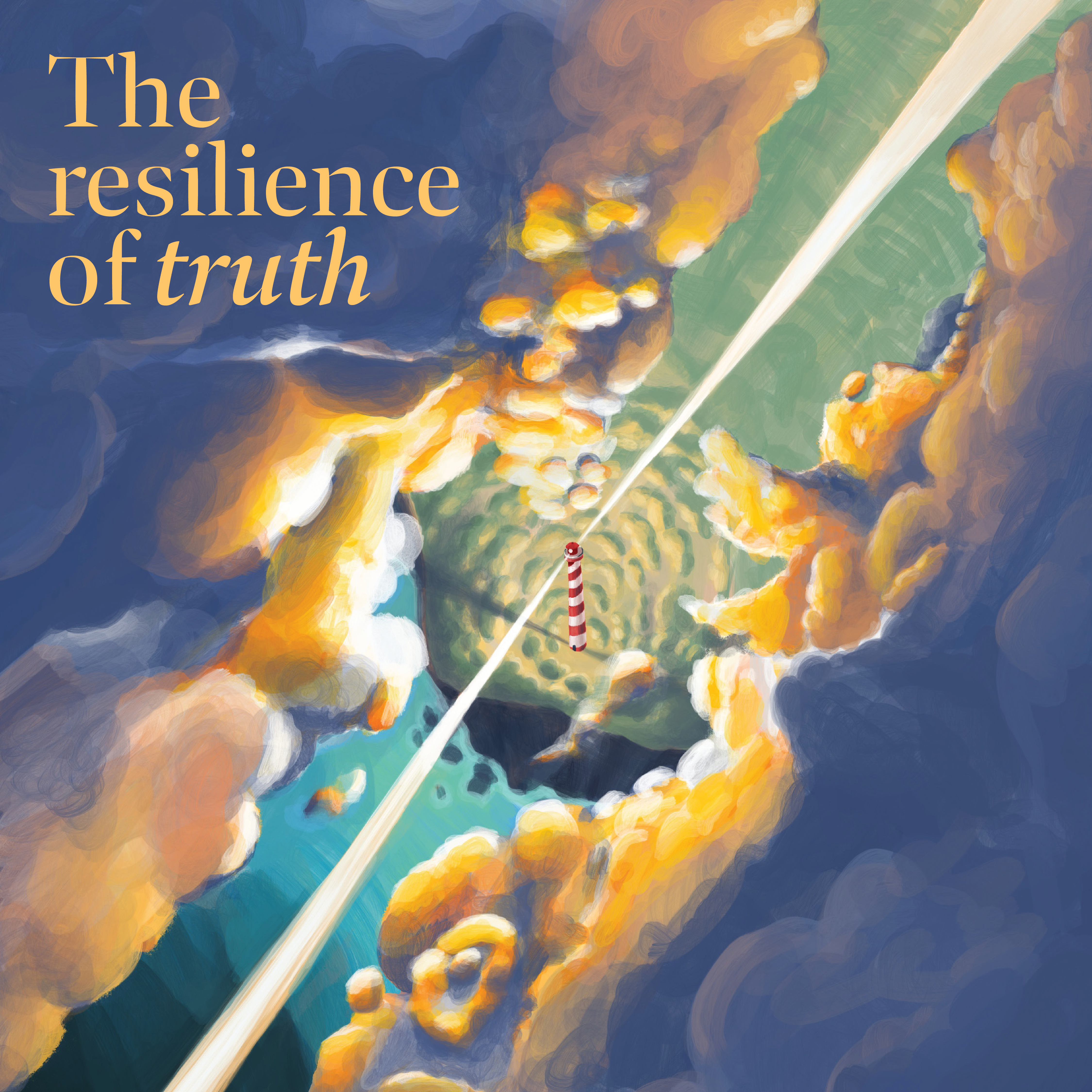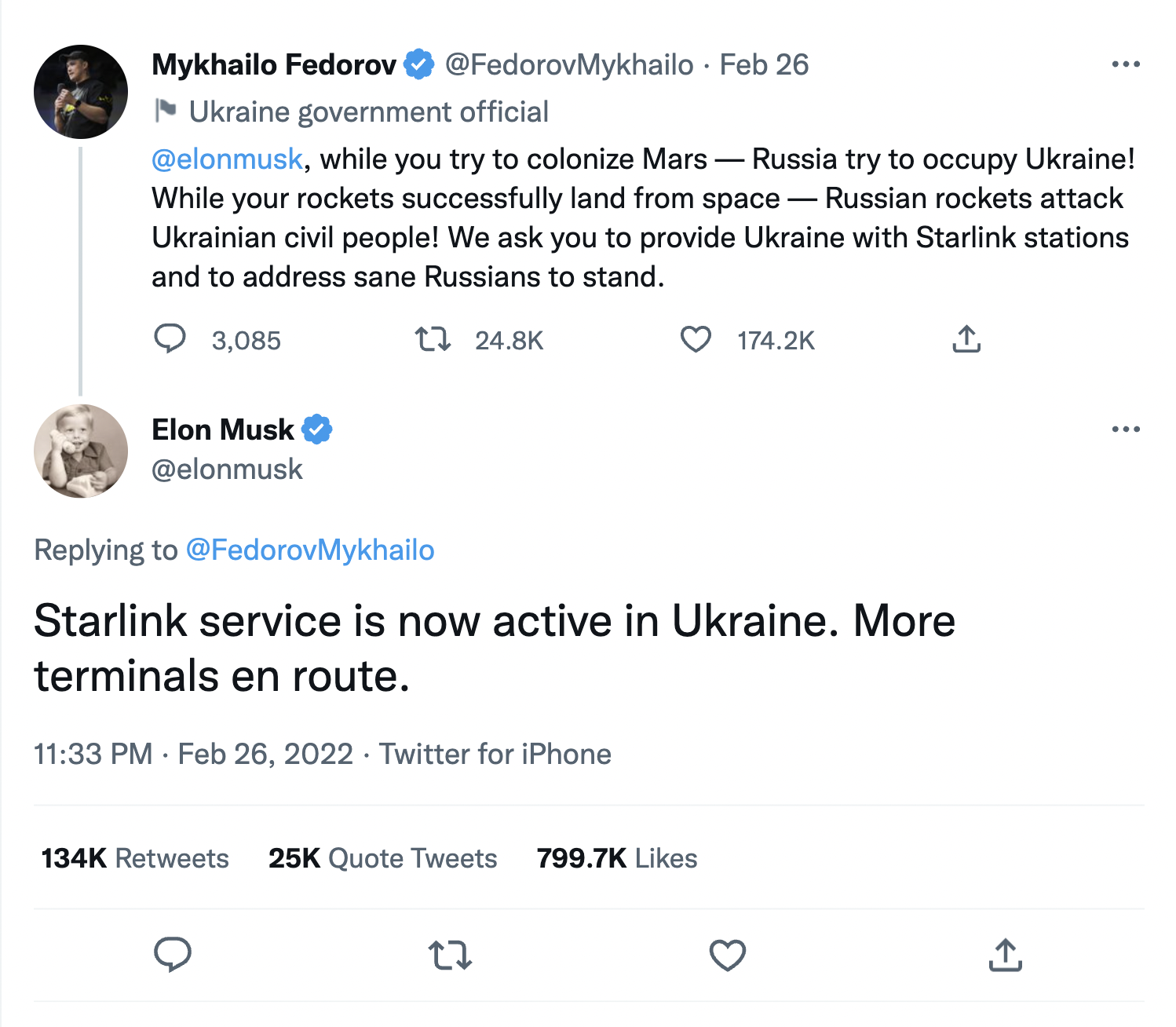Politics & Society
The Resilience of Truth
Despite the vast amount of broadcast and online Russian disinformation, Western audiences have been transfixed by the bravery and resilience of the Ukrainian people. Ukraine has been waging its own information war, and it is winning in that arena.

The impetus for Russian President Vladimir Putin’s invasion of Ukraine was built from the start upon fictional narratives of an exaggerated historical identity threatened by external forces. But before hostilities broke out on February 24, 2022, warnings of another Russian delusion emerged. The Kremlin was accused of planning a false-flag operation that it would blame on Ukraine and use as a pretense to launch the war. While no such attack occurred, Putin still said in a deceitful address to the Russian people, as rockets began descending on Kyiv, that he sought the “demilitarization and denazification of Ukraine”.
Russia is known to use highly sophisticated systems of information manipulation, in part through the far-reaching international influence of state-owned media such as RT and Sputnik News. Domestically, the Kremlin also uses censorship and intimidation to promote its agenda. But despite the vast amount of broadcast and online Russian disinformation, Western audiences have been transfixed by the bravery and resilience of the Ukrainian people. Ukraine has been waging its own information war, and it is winning in that arena.
Ukraine has been waging its own information war, and it is winning in that arena.
Social Media and the War Effort
Social media has played an unprecedented, instrumental role in the conflict. Online platforms have proved foundational for the dissemination of information and for other purposes, including procurement of aid and resources for the Ukrainian military.
The war’s outbreak also launched an overwhelmingly pro-Ukraine narrative on social media, and platforms made deliberate moves to minimize Russian disinformation. From Twitter to TikTok, images, stories and videos sympathetic to Ukraine inundated the internet. The New York Times’ March 7, 2022 homepage featured an image of four dead Ukrainian civilians, killed as they attempted to flee. The image is one of many that came to symbolize the ruthlessness of Russian aggression, stirring the hearts of millions. The husband and father of three of the victims learned of his unbearable loss by seeing the image on Twitter.
Other stories, such as that of the 13 brave Ukrainians who defied a Russian warship and of the “Ghost of Kyiv,” also trended on Twitter and were shared widely on Telegram. These, and other stories, contributed to the vast amount of pro-Ukraine information circulated online early in the conflict. Each image, video, personal story and meme reinforced the narrative that Ukrainians were fighting the good fight against a corrupt aggressor for their own preservation and for the future of democracy.
Social media has also been a powerful tool for securing aid and material. Meta’s Facebook, Instagram and WhatsApp hosted thousands of private fundraisers that have raised millions of dollars for Ukraine. Global Citizen, which is dedicated to eliminating poverty worldwide, has used the hashtag #StandUpForUkraine in a social media campaign to urge individuals to compel their leaders to provide financial aid. The campaign ended with a pledge of more than $10 billion in government grants and loans. An additional $530,000 came directly from individual citizens.
Social media has assisted Ukraine in other ways, too. Facebook is home to a number of groups dedicated to assisting the war effort. They include an association of more than 19,000 legal experts ready to provide pro bono advice to Ukrainian refugees. Private companies have also used social media as a means to connect with and deliver services to Ukrainians. Cybersecurity experts and VPN providers have offered free memberships, software and equipment to journalists and online activists. Ukrainian Vice Prime Minister and Minister of Digital Transformation Mykhailo Fedorov used Twitter to petition Space-X CEO Elon Musk to send terminals to access the Starlink satellite internet system. Musk obliged.

Victory on the Digital Front
Much of the world may have only recently become aware of Russia's pervasive disinformation schemes, but Ukrainians are well versed in their tactics. Ukrainian journalists and activists have been at the forefront of the information war that began years before the outbreak of military conflict. The Kyiv Independent, an English-language news outlet, had just 20,000 followers on Twitter in early February 2022. Seven months later it had more than 2.1 million. Its journalists have worked tirelessly to provide accurate coverage of the war, at times without electricity and stable internet connections. The nature of their work also means they contend with being targets. Reporters Without Borders (RSF) reports that as many as five journalists were killed by gunfire in the war’s first month.
Ukrainian President Volodymyr Zelenskyy has also adopted an image of defiance. By demonstrating courage, reason, cunning and humor, he is seen as the personification of his country’s war effort. He has aptly positioned himself as the antithesis of Putin, who is perceived as detached from reality and humiliated by failures in a conflict that he assumed would end in a quick victory. The Russian leader maintained until recently that Russia had seen no losses, despite the overwhelming evidence to the contrary. Even internal documents reportedly acknowledge steep economic decline.
In the face of Russian aggression, Ukraine has carefully maintained an image of rectitude, strength and resilience. Their composure and transparency has proved to be their greatest ammunition against Russian obfuscation.
Russia’s greatest disinformation campaign is waged against its own people. Domestic media that does not toe the Kremlin line has been silenced. “The government has taken complete control of news and information,” says RSF, “by establishing extensive wartime censorship, blocking the media, and pursuing non-compliant journalists. …” News outlets continue to report that Ukraine is the aggressor and must be demilitarized and de-radicalized. Foreign media and social media platforms such as Facebook are outright banned. And, for those who do find a way around the restrictions, disseminating the content may be subject to harsh penalties. Spreading “misinformation”, as the Russian government defines it, about the war in Ukraine could result in 15 years’ imprisonment. Even using the word “war” to describe what Putin calls a “special military operation” is a crime.
While Russia has employed a constant strategy of disinformation and deception, Western audiences have still overwhelmingly sided with Ukraine. In the face of Russian aggression, Ukraine has carefully maintained an image of rectitude, strength and resilience. Their composure and transparency has proved to be their greatest ammunition against Russian obfuscation.
The Two Faces of Online Information
The digital information space can be a dangerous weapon, especially in the fog of war. Polarization and disinformation abound, while social media algorithms ensure that the most explosive and divisive stories reach the most eyes. This coincides with an erosion of press freedoms and access to information in certain countries, including Russia, where independent war coverage is nonexistent.
However, the overall success of Ukraine online offers a reminder that there are forces stronger than disinformation. Ukraine has continually risen to the challenge, illustrating that transparency, truth and digital proficiency can weather the most sophisticated online deception storms. They have used social media to their advantage, and have overcome numerous financial and resource obstacles by doing so. Social media companies have helped in this effort by prioritizing factually accurate posts, an effort to offset Russian bots and fake accounts. But this is just one measure in a needed global movement. In order for democracies to prevail against an onslaught of digital disinformation, they must be present and active in the online spaces where deception and conspiracy thrive. The truth needs to be just as accessible and engaging as the lies.